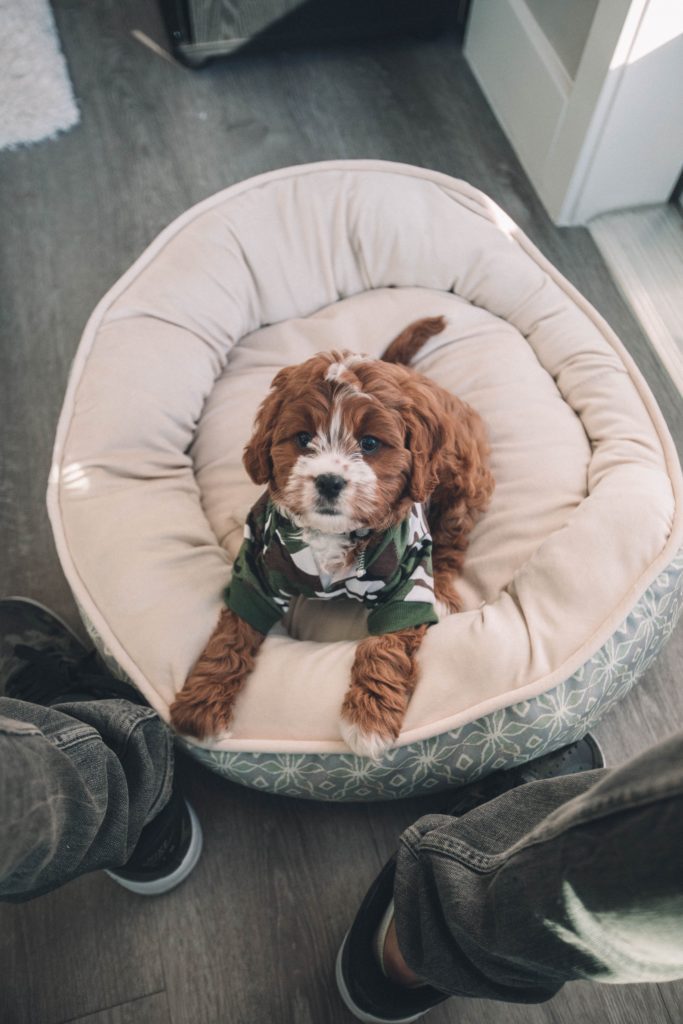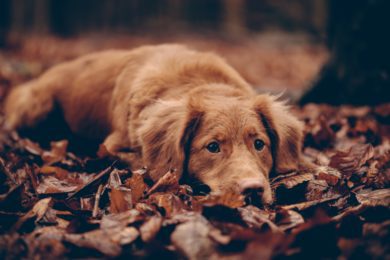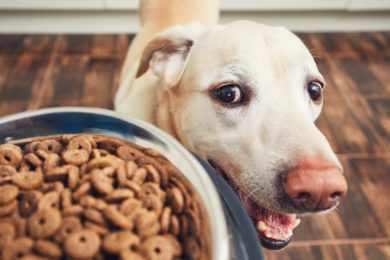 Every dog owner dreams of having a pooch that will hike, run, play, snuggle, and take the occasional road trip – all while perfectly behaved. Your dog will never chow down on your shoes. Your dog will never confuse your iPad with a chew toy. Well, your dog might not – but your puppy will! Before your new bundle of joy, and fur comes home, it’s time to do some puppy-proofing. Here are some tips to help.
Every dog owner dreams of having a pooch that will hike, run, play, snuggle, and take the occasional road trip – all while perfectly behaved. Your dog will never chow down on your shoes. Your dog will never confuse your iPad with a chew toy. Well, your dog might not – but your puppy will! Before your new bundle of joy, and fur comes home, it’s time to do some puppy-proofing. Here are some tips to help.
When you bring a new puppy into your house, go room-by-room and look for these potential dangers:
- Chemicals/medications. Anything from your cleaning solutions to your daily vitamins can be dangerous to a dog’s health. Keep all chemicals and medications on out-of-reach shelving or place childproof latches on lower cabinets to keep your pet out.
- Food. Think dogs don’t like vegetables? Fruit? Your last piece of triple fudge cake? Think again! When food is left out on tables, countertops, or in low cabinets, curious pups will explore – with their mouths. While this can put a dent in your dinner plans, foods like chocolate, onions, bread dough, grapes, raisins, and garlic can be hazardous.
- Wiring. They’re hard to resist…those intriguing black cables. Your puppy will naturally be drawn to power cords and other wiring, but chewing them can result in shock, burns, lung damage, or even death. Help your puppy resist that temptation by placing cords out of sight. If that’s not possible, use cord concealers or a simple length of PVC pipe.
- Plants. Your flowers and foliage add to the beauty of your home, but some species are trouble for puppies. Plants, such as Aloe Vera, begonias, calla lilies, eucalyptus, marigolds, poinsettias, and shamrocks, can be toxic and cause serious health issues. Please do your research and learn about all hazardous plants.
- Trash. This is as much for your benefit as your puppy’s. Waking up to find your trash can overturned – and garbage spread throughout your house – is not a great way to begin your day! Nor is it good for your dog. Trash can contain harmful substances, including wrappers, paper towels soaked with cleaning chemicals, chicken bones, and other health/choking hazards. It’s best to keep trash cans securely covered or place them in a safe location (such as a latched cabinet or cupboard).
- Small objects. Whether it’s a pair of earrings, a box of paperclips, or a set of keys, your dog loves to explore – and swallow. If the objects are small enough, they typically pass without a problem. (Well, without a problem for your puppy. You may have loved those earrings/paperclips!) But foreign objects can also cause obstructions in the mouth, throat, esophagus, stomach, or intestines. Keep small items out of reach, and be prepared in case your dog swallows anything. Trainer Cesar Milan has some useful tips for spotting warning signs – and acting quickly.
- Things that smell like – you! Just as dogs explore with their mouths, they also explore with their noses. They’re scent-oriented, and they often love objects that smell like their owners. Keep shoes, clothing, and other items in a closet or closed room until your puppy is thoroughly trained.
Take some time to follow these easy tips before your new puppy comes home. It’ll keep him – your shoes, iPad, and that triple fudge cake – safe!


